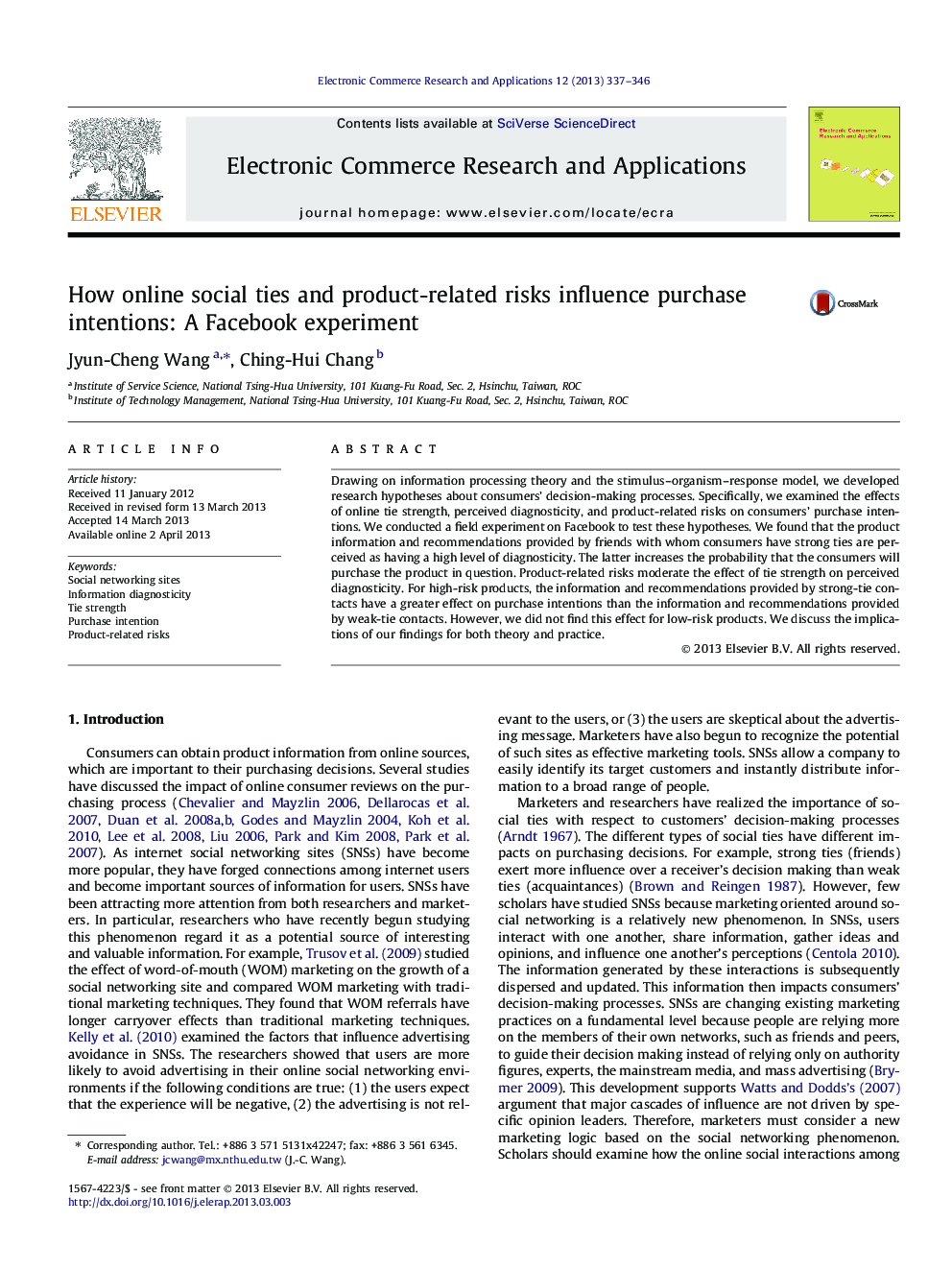| Article ID | Journal | Published Year | Pages | File Type |
|---|---|---|---|---|
| 379715 | Electronic Commerce Research and Applications | 2013 | 10 Pages |
•This study identifies the varied influences of information from Facebook friends.•Information provided by online strong-tie friends has a high diagnosticity.•Product-related risks moderate the effect of online tie strength on diagnosticity.•For high-risk products, strong-tie sources have a larger effect than weak-tie.•For low-risk products, the strong and weak-tie sources have the same effect.
Drawing on information processing theory and the stimulus–organism–response model, we developed research hypotheses about consumers’ decision-making processes. Specifically, we examined the effects of online tie strength, perceived diagnosticity, and product-related risks on consumers’ purchase intentions. We conducted a field experiment on Facebook to test these hypotheses. We found that the product information and recommendations provided by friends with whom consumers have strong ties are perceived as having a high level of diagnosticity. The latter increases the probability that the consumers will purchase the product in question. Product-related risks moderate the effect of tie strength on perceived diagnosticity. For high-risk products, the information and recommendations provided by strong-tie contacts have a greater effect on purchase intentions than the information and recommendations provided by weak-tie contacts. However, we did not find this effect for low-risk products. We discuss the implications of our findings for both theory and practice.
